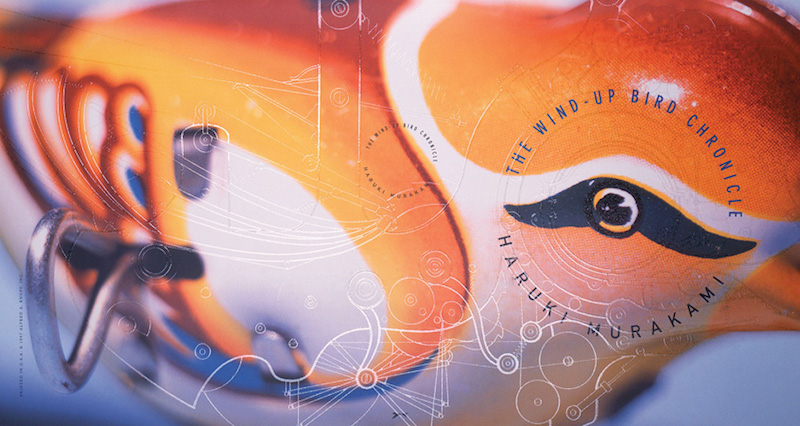
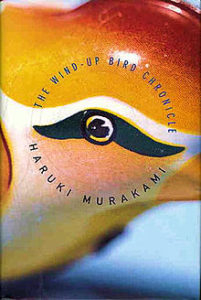
“I could hear the roots of loneliness creeping through me when the world was hushed at four o’clock in the morning”
*
“One of the preoccupying themes of Japanese literature in this century has been the question of what it means to be Japanese, especially in an era that has seen the rise and fall of militarism and the decline of traditional culture. But from reading the books of Haruki Murakami, one of the country’s most celebrated novelists, you’d never know he was Japanese at all: his characters read Turgenev and Jack London, listen to Rossini and Bob Dylan, eat pate de foie gras and spaghetti, and know how to make a proper salty dog. In Murakami’s early books, the references to Western pop culture were sometimes so obscure that they even flew over the heads of many Americans. Murakami’s protagonists are soft, irresolute men, often homebodies with dynamic girlfriends or wives, who go through long, inert periods of ennui—a blatant renunciation of the frenetic, male-dominated ethos of modern Japan. Perhaps for that reason, his books are huge successes there: a two-volume novel called Norwegian Wood (taking its title from the Beatles song) has sold more than four million copies, making him Japan’s best-selling novelist.
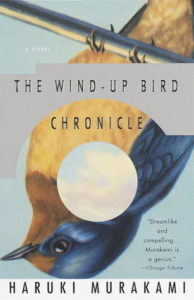
“But he has yet to find a wide following abroad. The novels that have been published in English—A Wild Sheep Chase, its sequel, Dance Dance Dance, and Hard-Boiled Wonderland and the End of the World—occupy a shadowland between cyberpunk sci-fi, gumshoe detective fiction and hip social satire. Western critics searching for parallels have variously likened him to Raymond Carver, Raymond Chandler, Arthur C. Clarke, Don DeLillo, Philip K. Dick, Bret Easton Ellis and Thomas Pynchon—a roster so ill assorted as to suggest that Murakami may in fact be an original.
The Wind-Up Bird Chronicle, which came out in Japan two years ago, is a big, ambitious book clearly intended to establish Murakami as a major figure in world literature. Although his earlier books bristle with philosophical asides and literary allusions (always Western, of course), Japanese critics treated him as a lightweight, a wise guy who never took anything seriously. The new book almost self-consciously deals with a wide spectrum of heavy subjects: the transitory nature of romantic love, the evil vacuity of contemporary politics and, most provocative of all, the legacy of Japan’s violent aggression in World War II.
…
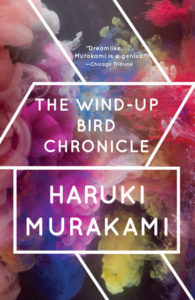
”The Wind-Up Bird Chronicle does have its flaws, principally in its uneven design. Murakami has said that he does not plot his novels beforehand but lets the story reveal itself to him as he writes: it shows, especially in the way that neither Toru nor the novelist seems to know or care whether Toru’s adventures are real or illusory. And the juxtaposition of the harrowing, all-too-real war stories with the marvelous, supernatural events in Toru’s quest feels contrived. The war narratives were almost certainly composed separately and then inserted into the novel to support its grand aspirations.
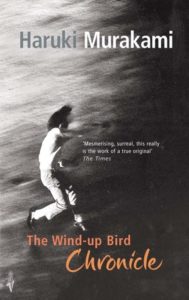
“Yet what Murakami lacks in finesse is more than compensated by the brilliance of his invention. As it floats to its conclusion, The Wind-Up Bird Chronicle includes an almost Joycean range of literary forms: flashbacks, dreams, letters, newspaper stories and transcripts of Internet chats. And no matter how fantastical the events it describes may be, the straight-ahead storytelling never loses its propulsive force. By the book’s midway point, the novelist-juggler has tossed so many balls into the air that he inevitably misses a few on the way down. Visionary artists aren’t always neat: who reads Kafka for his tight construction? In The Wind-Up Bird Chronicle Murakami has written a bold and generous book, and one that would have lost a great deal by being tidied up.”
–Jamie James, The New York Times, November 2, 1997

